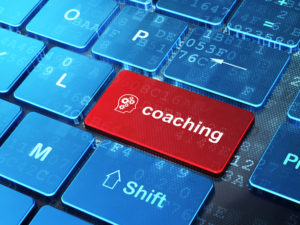 What’s the most honorable profession?
What’s the most honorable profession?
Coaching, according to Tony Stubblebine, the founder of Lift, a technology-based habit-tracking company. In early 2015, he pivoted Lift into Coach.me to help ambitious people work with coaches to start and sustain the self-improvement changes they want to make.
Anyone who signs up at Coach.me has access at affordable prices to expert help, advice and accountability from a personal coach they select. The coaching is via phone, video and/or texting.
(In the interest of full disclosure, I used Lift and then became one of Coach.me’s many coaches. Until recently, I hadn’t done much with the platform. More about this later.)
If Coach Tony sounds self-serving, he’s got the data, reasoning, and the respect of coaches to back up his viewpoint.
Coaching is a uniquely noble profession because it’s unmatched as a way to achieve change.
We coaches are exceptionally capable of helping people as they work to improve themselves. We guide individuals through behavior change, which is fundamentally hard to do. Our power as coaches is making change easier – or less difficult – through personalized attention, targeted actions, and support, including keeping our coachees accountable.
Also, individuals who work with a coach are able to progress to places that they can’t reach on their own. Books and classes just aren’t as effective for building sustainable change, especially for those who lack the discipline to follow through on their own.
Coaching also is an honorable profession because we coaches contribute to the global good – helping people succeed, as Coach Tony has observed.
Individuals who have a positive experience with coaching are able to enhance life for themselves and others in so many ways. For example, in addition to more job fulfillment, they improve their happiness, increase their impact, and perform enormous acts of good for other people.
As background, my own practice as a business executive coach started in 2011 when I completed my brain-based coaching with the NeuroLeadership Institute. Since then, so many of my coachees have told me how sticky and potent their coaching experiences were.
My coachees have reaped a range of benefits by investing a few hours each week over a three to six month-period. These individuals have increased their self-awareness while learning more effective and consistent ways to manage their time, practice self-care, and set priorities. They now recognize what’s important to them in all aspects of their life, which has guided them in taking career actions.
For instance, one coachee decided to give up managerial responsibilities to return to her first love, caring for patients. She told me she feels more purpose and energy on the frontlines.
Other coachees have focused on improving their leadership skills. This means different things for different people. Some became better listeners and communicators while learning how to be more empathetic and vulnerable. In the process, they improved their executive presence. Others focused more on developing their team members. As a result, several have advanced into senior vice president roles in major corporations and are enjoying the increased responsibilities and impact they’re making.
Several entrepreneurs have worked with me on developing stronger relationships with their boards of directors and their staff members. These entrepreneurs report more job enjoyment and rewards. Plus their organizations are stronger and performing at higher levels.
These examples highlight my traditional approach to coaching – generally talking for an hour at a time via phone or Zoom, or, before March 2020, sometimes in person. With my guidance and support, my coachees set inspiring goals, break them into small, manageable steps, and create habits to sustain the progress they’re achieving.
While this approach still delivers solid results, it’s not for everyone, especially two particular groups: 1) those who want to work on laser-focused change and 2) those who want to spend less time and money on coaching yet still make sustainable progress.
So I’m changing too in order to serve more individuals and their specific needs and wants. I’m now getting involved with the Coach.me platform to offer coaching for specific challenges via text, phone, or video. I’m also available for 30-minute periods for leadership and accountability support, either in a single session or in multiple packages, by phone or video conferencing.
Also, I’m enrolled in Coach.me’s new certified habit training program. While I already have extensive experience in habits, I always can learn and do more.
The keystone habit I’ll be coaching is practicing a daily act of kindness for others and yourself. By adopting this habit, you’ll build muscles for empathy, which will be helpful for you in all types of settings.
In addition, this keystone habit can serve as a bridge to help you increase your confidence, curiosity and courage to speak up and build a better, more inclusive workspace.
I’m excited about all of these changes, including expanding my way of doing such honorable, worthwhile work.
If you’re interested in self-improvement, contact me. I’d love to talk with you about how to bring your best self forward through coaching!

0 Comments